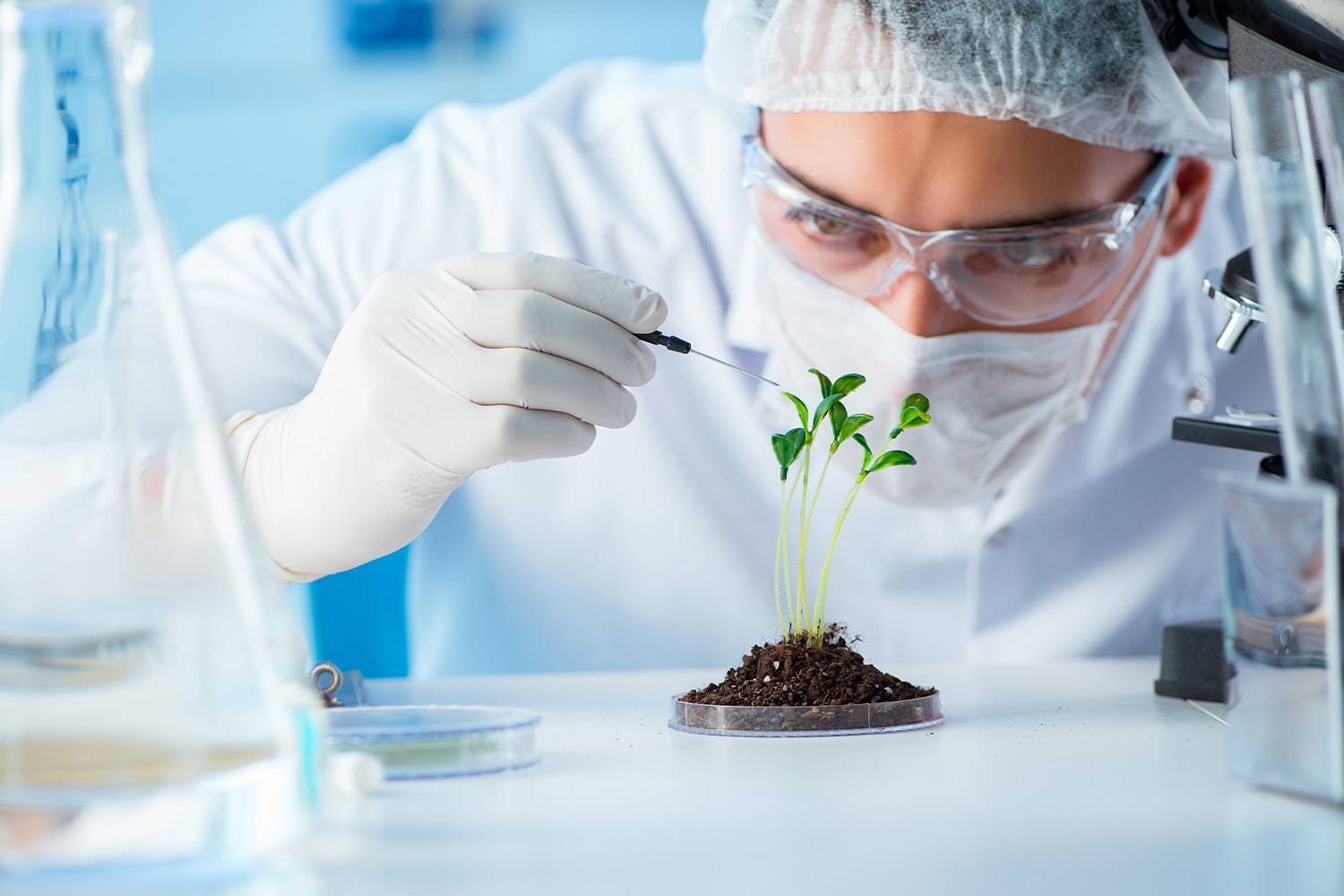
Biotechnology is a field that has been revolutionizing various industries, from medicine to agriculture, and even renewable energy. It involves the application of biological techniques and processes to develop new products and improve existing ones. This rapidly advancing field merges biology with technology, leading to innovative solutions to some of the world’s most pressing problems.
In this article, we will explore 18 fascinating facts about biotechnology that highlight its incredible impact on our society. From the discovery of life-saving drugs to genetically modified crops and biofuels, biotechnology has the potential to transform the way we live and interact with the natural world.
Join us on this journey as we uncover the captivating world of biotechnology and delve into the exciting advancements that are shaping our future.
Key Takeaways:
- Biotechnology has been shaping our world for thousands of years, from improving medicine and agriculture to aiding in environmental cleanup and even solving crimes. It’s a fascinating field with endless possibilities!
- With biotechnology constantly evolving, we can look forward to more exciting developments in medicine, agriculture, and environmental conservation. This dynamic field is revolutionizing various industries and improving our lives in remarkable ways!
Biotechnology has been used for thousands of years.
Biotechnology is not a new field. In fact, humans have been using biotechnology methods for thousands of years, such as fermenting grapes to make wine and breeding plants for better yields.
Biotechnology has revolutionized medicine.
Thanks to biotechnology, we now have advancements in medicine like genetically engineered insulin for diabetes treatment and gene therapy for curing genetic diseases.
Biotechnology plays a crucial role in agriculture.
Biotechnology has helped develop genetically modified crops that are resistant to pests, diseases, and harsh environmental conditions, leading to increased crop yields and improved food production.
Biotechnology can help clean up pollution.
Through the process of bioremediation, certain organisms are used to break down and remove pollutants from the environment, making biotechnology an important tool in environmental cleanup efforts.
Biotechnology impacts the beauty industry.
The beauty industry relies on biotechnology for the production of cosmetic products, such as genetically modified bacteria used to produce hyaluronic acid for skincare products.
Biotechnology can aid in solving crimes.
Forensic biotechnology analyzes DNA evidence to assist in solving criminal cases, identifying perpetrators, and exonerating innocent individuals.
Biotechnology is used in the production of biofuels.
Biotechnology plays a crucial role in the development of biofuels, such as ethanol and biodiesel, which are more sustainable and environmentally friendly alternatives to fossil fuels.
Biotechnology helps in the production of bioplastics.
Bioplastics, which are derived from renewable sources like plant starches, can be produced using biotechnology methods, reducing dependency on fossil fuel-based plastics.
Biotechnology contributes to the field of forensic science.
In forensic science, biotechnology techniques are utilized for DNA profiling, identification of unknown substances, and analysis of crime scene evidence.
Biotechnology aids in environmental conservation.
Biotechnology enables the preservation and conservation of endangered species through methods like cloning and genetic preservation.
Biotechnology can improve the quality of textiles.
Through genetic engineering, biotechnology can enhance the quality and properties of fabrics, such as making them more durable, stain-resistant, or flame-retardant.
Biotechnology is used in the production of vaccines.
Modern vaccines, like the ones developed for COVID-19, are produced using biotechnology techniques, enabling faster and more efficient vaccine development.
Biotechnology can help in the production of renewable energy.
Biotechnology is utilized in the production of renewable energy sources, such as biofuels and biogas, which reduce our reliance on non-renewable energy like fossil fuels.
Biotechnology is transforming the field of diagnostics.
Advancements in biotechnology have led to the development of more accurate and efficient diagnostic tests for various diseases, improving patient care and treatment outcomes.
Biotechnology can enhance the flavors and nutritional content of food.
Genetically modified organisms can be used to enhance the flavors, textures, and nutritional content of food, contributing to improved food quality and consumer satisfaction.
Biotechnology contributes to waste management.
Biotechnology methods can be employed in waste management, such as using microorganisms to break down organic waste and produce biogas or compost.
Biotechnology plays a role in the development of personalized medicine.
With advances in biotechnology, personalized medicine that takes an individual’s genetic makeup into account is becoming more accessible, leading to more targeted and effective treatments.
Biotechnology is constantly evolving.
The field of biotechnology is constantly evolving and expanding, with researchers and scientists discovering new applications and techniques to address global challenges and improve various industries.
Conclusion
Biotechnology is a field that continues to revolutionize various industries and holds immense promise for the future. Through advancements in genetic engineering, molecular biology, and other techniques, scientists and researchers are able to manipulate and utilize living organisms to enhance our lives in numerous ways. From developing new medications to improving crop yields, biotechnology plays a crucial role in addressing global challenges such as food security, environmental sustainability, and healthcare.
With its ability to unlock the potential of living organisms, biotechnology opens up a world of possibilities for scientific discovery and innovation. As we continue to delve deeper into this field, it is vital to balance the ethical considerations and ensure responsible and sustainable use of biotechnological advancements.
By understanding and embracing biotechnology, we can harness its potential to improve human well-being, protect the environment, and shape a brighter future for generations to come.
FAQs
1. What is biotechnology?
Biotechnology is the application of scientific and engineering principles to manipulate and utilize living organisms or their components to develop useful products and technologies.
2. What are some examples of biotechnology in everyday life?
Biotechnology has numerous applications in everyday life, such as the production of biofuels, genetically modified crops, antibiotics, and vaccines.
3. How does biotechnology contribute to healthcare?
Biotechnology plays a crucial role in healthcare by enabling the development of new medications, diagnostic tools, and therapies, leading to improved treatments for various diseases and conditions.
4. What are the environmental benefits of biotechnology?
Biotechnology offers potential solutions to environmental challenges by providing sustainable alternatives to conventional agricultural and industrial practices, reducing pollution, and enabling the production of renewable resources.
5. Are there any ethical concerns associated with biotechnology?
While biotechnology brings significant benefits, it also raises ethical concerns related to issues such as genetic modification, cloning, and access to biotechnological advancements. It is important to address these concerns and ensure responsible use of biotechnology.
Biotechnology's impact spans countless aspects of modern life, from groundbreaking medical treatments to eco-friendly solutions. Curious minds can further explore this fascinating field by delving into biotechnology applications, industrial biotechnology's transformative potential, and microbial biotechnology's microscopic wonders. Each area offers a unique perspective on how science and nature intertwine to shape our world. Whether you're a budding scientist or simply eager to learn more, these captivating facts will leave you in awe of biotechnology's incredible possibilities. So, why not satisfy your thirst for knowledge and uncover the secrets of this remarkable discipline?
Was this page helpful?
Our commitment to delivering trustworthy and engaging content is at the heart of what we do. Each fact on our site is contributed by real users like you, bringing a wealth of diverse insights and information. To ensure the highest standards of accuracy and reliability, our dedicated editors meticulously review each submission. This process guarantees that the facts we share are not only fascinating but also credible. Trust in our commitment to quality and authenticity as you explore and learn with us.


